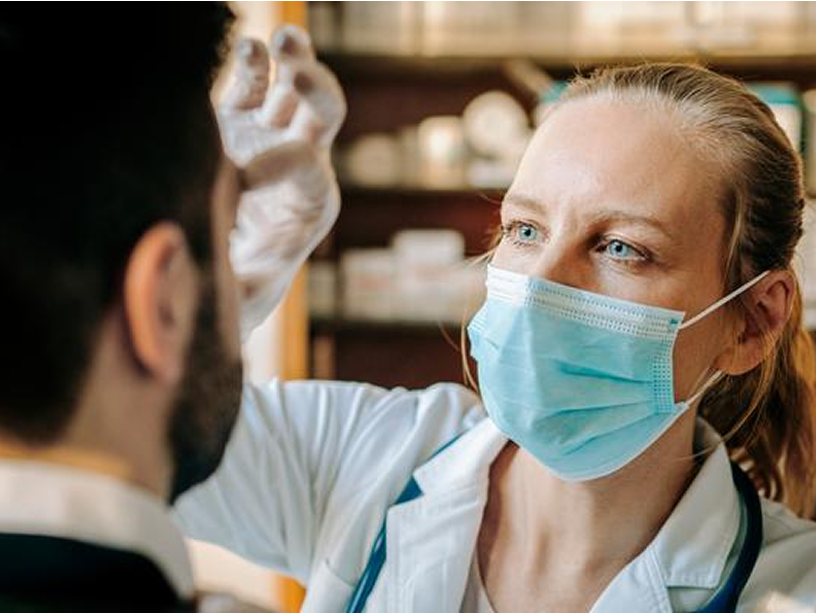Clinical trials
Helping others by contributing to medical research.

What is a clinical trial?
A clinical trial, also called a research study, is a scientific evaluation that helps medical professionals learn about an investigational medication or vaccine.
But there’s much more to a clinical trial than just that. To find out what we mean, watch this short video that will:
- Describe a clinical trial in more detail
- Explain investigational medication
- Give you an idea of what it’s like to participate in a clinical trial
Understanding clinical trials can feel overwhelming, especially with all the medical and scientific terms involved. To help you navigate this journey with confidence, we’ve put together a list of key terms you should know. These definitions will make it easier to understand the process, your rights, and what to expect at every stage.
What are the phases in a Clinical trial?
A clinical trial, also called a clinical research study, is a carefully designed scientific evaluation conducted by doctors and researchers to determine if an investigational medicine, device, or procedure is safe or effective.
Trials are conducted in four phases:
Phase 1
Examine the safety of an investigational medicine in healthy people.
Phase 2
Assessment of safety and additional efficacy and establishing the best dosing regimen while testing safety in patients.
Phase 3
Confirm the efficacy and safety of an investigational medicine in patients.
Phase 4
Phase 4 trials are conducted after an investigational medicine has been approved to gather additional efficacy and safety information.
Why is clinical research important?
Clinical research studies help doctors and scientists determine if investigational medicines are safe for people to take and whether they are effective in treating a condition, disease, or disorder. In rare diseases where the population is limited and not as much is known in comparison to other more common diseases, clinical research may be even more impactful toward improving researchers’ understanding of the disease.
What you can expect to happen in a clinical trial?
Clinical trials are rarely the same. They can last from weeks to years, study different doses of a medication, or even compare multiple medications at once. While the details change, all trials are structured in a similar way. Typically, there are four main parts of a trial, with each part serving a different purpose.
1. Screening
Before you can join a trial, the trial doctor and staff must determine if you meet the requirements to participate and you will need to sign an Informed Consent Form (ICF). To do this, they will conduct a number of tests and assessments to see if you qualify.
2. Enrollment
Once you complete screening and it’s determined that you qualify, you will have the option to enroll in the trial. If you choose to enroll, you will begin to participate in the trial.
3. Investigational treatment phase
In this part of the trial, you will have study visits and take your assigned trial medication. The number of visits and length of time you receive trial medication will depend on the specific trial. While you’re receiving investigational medication, you will attend clinic visits and undergo tests and assessments.
4. Follow-up
Once Treatment ends, you will enter Follow-Up. You won’t take any investigational medication, but you may continue attending clinic visits. Additionally, the trial doctor and staff will stay in touch with you to continue monitoring your health. The length of time you spend in Follow-Up will depend on the specific trial.

Why are participants needed?
Clinical research studies often require many volunteers to participate in a single study; sometimes thousands of participants are needed to obtain reliable information. This can be especially be challenging in rare diseases, as it can be difficult to find enough patients to enroll.
Is a clinical trial right for you?
Each clinical trial has a specific set of eligibility criteria that you must meet before you can join. Most trials will require you to be in a certain age range and have a specific disease or condition.
Here is an example of eligibility criteria:
- 18 years of age or older
- Diagnosed with type 2 diabetes
- Taking medication for type 2 diabetes
Prior to joining a trial, the trial doctor and staff will review the eligibility criteria with you.
Patients tell all: why clinical trials were right for them
If you’ve never participated in a clinical trial, it’s common to have questions about what the experience is like. While your HCP is here to answer any questions, another good way to learn about clinical trials is to talk with people who’ve volunteered as trial participants themselves. It might be a friend, a family member, a classmate, or a coworker. As a starting point, check out the four patients below and hear how clinical trials made a difference in their lives.
Amy
Amy has spent the past 20 years living with the challenges of systemic scleroderma, a rare disease that affects only about one in 10,000 people. Hear what first led her to clinical trials and why she thinks they played a huge role in developing multiple treatment options that benefit her disease community today.
George
A retired doctor himself, George was taken by surprise to learn he had mantle cell lymphoma, a type of cancer affecting the immune system. Facing a difficult prognosis, he quickly realized that joining a clinical trial offered him the chance to once again be a contributing member of the scientific community. Now, some three years later, he’s only looking ahead.
Lucy
With no cancer history in her family, Lucy had little reason to believe that a small lump in her breast could be cancerous. Until it was. Listen as Lucy, a young teacher, does her own research to decide if a clinical trial of two similar cancer treatments is right for her.
Alicia
When Alicia was diagnosed with HIV, she largely kept it to herself. It was a different time, and the stigma of HIV was unforgiving. But as times changed, she began to have a different outlook. Hear how clinical trials became one of the many ways that Alicia could give back to her community.
Interested?
Clinical research study participation offers an opportunity to be part of something bigger - research that may advance understanding of a disease or help get a new treatment approved. However, participation may also involve risks. Always make sure to discuss any potential benefits and risks with your study doctor. If you are interested in participating in a clinical trial and you would like to learn more - your doctor, nurse, or other healthcare professional could help you in searching for trials that are available.
- Getting actively involved in your own healthcare
- Regularly scheduled medical attention from a team of healthcare professionals
- Helping others by participating in research that may result in advancing the understanding and treatment of the disease
- The investigational treatment may not work
- The investigational treatment may cause side effects
- Potential to be excluded from other clinical trials